Renault Arkana vs Toyota Yaris – Performance, range & efficiency compared
Costs and Efficiency:
When it comes to price and running costs, the biggest differences usually appear. This is often where you see which car fits your budget better in the long run.
Toyota Yaris has a evident advantage in terms of price – it starts at 21900 £, while the Renault Arkana costs 28500 £. That’s a price difference of around 6600 £.
Fuel consumption also shows a difference: Toyota Yaris manages with 3.80 L and is therefore noticeable more efficient than the Renault Arkana with 4.70 L. The difference is about 0.90 L per 100 km.
Engine and Performance:
Under the bonnet, it becomes clear which model is tuned for sportiness and which one takes the lead when you hit the accelerator.
When it comes to engine power, the Toyota Yaris has a convincingly edge – offering 280 HP compared to 143 HP. That’s roughly 137 HP more horsepower.
In acceleration from 0 to 100 km/h, the Toyota Yaris is convincingly quicker – completing the sprint in 5.50 s, while the Renault Arkana takes 10.80 s. That’s about 5.30 s faster.
In terms of top speed, the Toyota Yaris performs distinct better – reaching 230 km/h, while the Renault Arkana tops out at 172 km/h. The difference is around 58 km/h.
There’s also a difference in torque: Toyota Yaris pulls convincingly stronger with 390 Nm compared to 205 Nm. That’s about 185 Nm difference.
Space and Everyday Use:
Beyond pure performance, interior space and usability matter most in daily life. This is where you see which car is more practical and versatile.
Both vehicles offer seating for 5 people.
In curb weight, Toyota Yaris is noticeable lighter – 1090 kg compared to 1510 kg. The difference is around 420 kg.
In terms of boot space, the Renault Arkana offers significantly more room – 480 L compared to 286 L. That’s a difference of about 194 L.
In maximum load capacity, the Renault Arkana performs distinct better – up to 1263 L, which is about 328 L more than the Toyota Yaris.
When it comes to payload, Toyota Yaris somewhat takes the win – 525 kg compared to 451 kg. That’s a difference of about 74 kg.
Who comes out on top?
Overall, the Toyota Yaris shows itself to be wins the duel decisively and secures the title of DriveDuel Champion.
It convinces with the more balanced overall package and proves to be the more versatile choice for everyday use.
Costs and Consumption
View detailed analysis
Engine and Performance
View detailed analysis
Dimensions and Body
View detailed analysis
 @ Toyota Motor Corporation
@ Toyota Motor Corporation
Toyota Yaris
Renault Arkana
The Arkana stands out with its striking coupe-SUV design, blending sporty aesthetics with practicality. Its bold silhouette and high ride height offer a unique presence on the road, attracting attention wherever it goes. Inside, the Arkana combines modern technology with comfort, making it a versatile choice for both city driving and weekend getaways.
details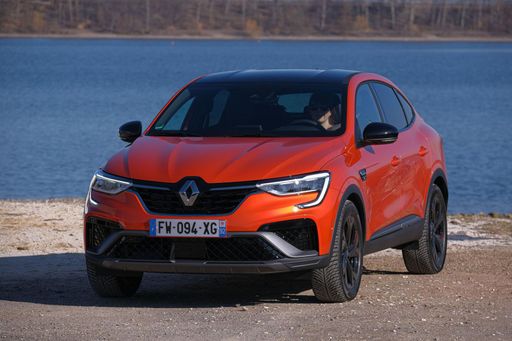 @ Renault Group Media
@ Renault Group Media
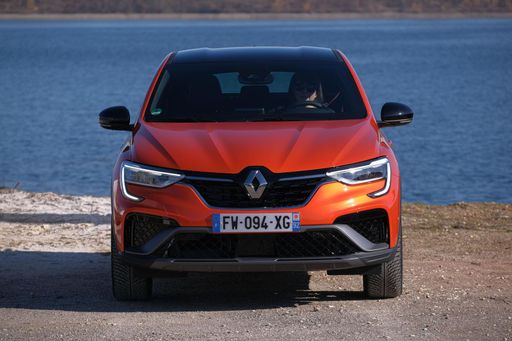 @ Renault Group Media
@ Renault Group Media
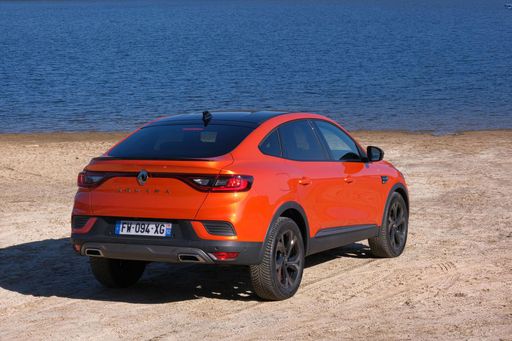 @ Renault Group Media
@ Renault Group Media
 @ Renault Group Media
@ Renault Group Media
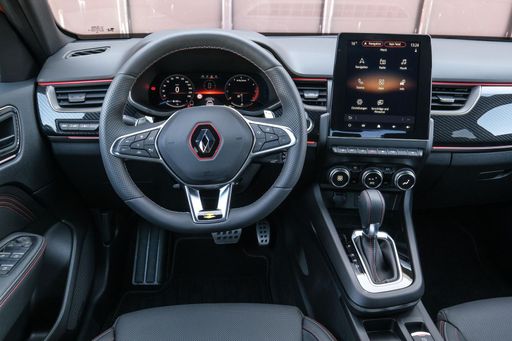 @ Renault Group Media
@ Renault Group Media
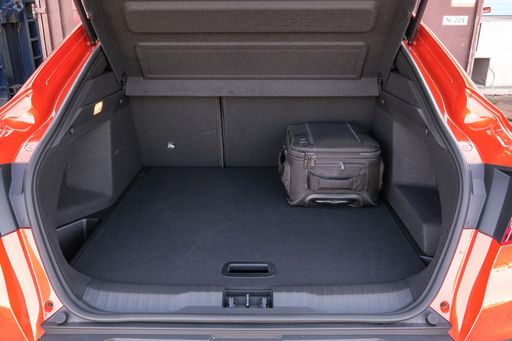 @ Renault Group Media
@ Renault Group Media
Toyota Yaris
The Toyota Yaris is a sprightly city hatch that packs clever packaging, surprising comfort and fuel-sipping manners into a neat, easy-to-park package. It rewards sensible buyers with low running costs, friendly ergonomics and a forgiving drive, delivered with Japanese reliability and just enough personality to make errands feel a little less ordinary.
details @ Toyota Motor Corporation
@ Toyota Motor Corporation
 @ Toyota Motor Corporation
@ Toyota Motor Corporation
 @ Renault Group Media
@ Renault Group Media
|
 @ Toyota Motor Corporation
@ Toyota Motor Corporation
|
|
|
|
Costs and Consumption |
|
|---|---|
|
Price
28500 - 31900 £
|
Price
21900 - 46700 £
|
|
Consumption L/100km
4.70 L
|
Consumption L/100km
3.8 - 9.5 L
|
|
Consumption kWh/100km
-
|
Consumption kWh/100km
-
|
|
Electric Range
-
|
Electric Range
-
|
|
Battery Capacity
0.60 kWh
|
Battery Capacity
-
|
|
co2
106 g/km
|
co2
87 - 215 g/km
|
|
Fuel tank capacity
50 L
|
Fuel tank capacity
36 - 50 L
|
Dimensions and Body |
|
|---|---|
|
Body Type
SUV
|
Body Type
Hatchback
|
|
Seats
5
|
Seats
4 - 5
|
|
Doors
5
|
Doors
3 - 5
|
|
Curb weight
1510 kg
|
Curb weight
1090 - 1356 kg
|
|
Trunk capacity
480 L
|
Trunk capacity
141 - 286 L
|
|
Length
4568 mm
|
Length
3940 - 3995 mm
|
|
Width
1821 mm
|
Width
1745 - 1805 mm
|
|
Height
1576 mm
|
Height
1455 - 1500 mm
|
|
Max trunk capacity
1263 L
|
Max trunk capacity
935 L
|
|
Payload
451 kg
|
Payload
289 - 525 kg
|
Engine and Performance |
|
|---|---|
|
Engine Type
Full Hybrid
|
Engine Type
Full Hybrid, Petrol
|
|
Transmission
Automatic
|
Transmission
Automatic, Manuel
|
|
Transmission Detail
Automatic Gearbox
|
Transmission Detail
CVT, Manual Gearbox, Automatic Gearbox
|
|
Drive Type
Front-Wheel Drive
|
Drive Type
Front-Wheel Drive, All-Wheel Drive
|
|
Power HP
143 HP
|
Power HP
116 - 280 HP
|
|
Acceleration 0-100km/h
10.80 s
|
Acceleration 0-100km/h
5.5 - 9.7 s
|
|
Max Speed
172 km/h
|
Max Speed
175 - 230 km/h
|
|
Torque
205 Nm
|
Torque
390 Nm
|
|
Number of Cylinders
4
|
Number of Cylinders
3
|
|
Power kW
105 kW
|
Power kW
85 - 206 kW
|
|
Engine capacity
1598 cm3
|
Engine capacity
1490 - 1618 cm3
|
General |
|
|---|---|
|
Model Year
2025
|
Model Year
2024 - 2025
|
|
CO2 Efficiency Class
C
|
CO2 Efficiency Class
B, G
|
|
Brand
Renault
|
Brand
Toyota
|
What drivetrain options does the Renault Arkana have?
The Renault Arkana is offered with Front-Wheel Drive.
The prices and data displayed are estimates based on German list prices and may vary by country. This information is not legally binding.
